What Cowboys Actually Ate on the Trail: A Look at the Old West Diet
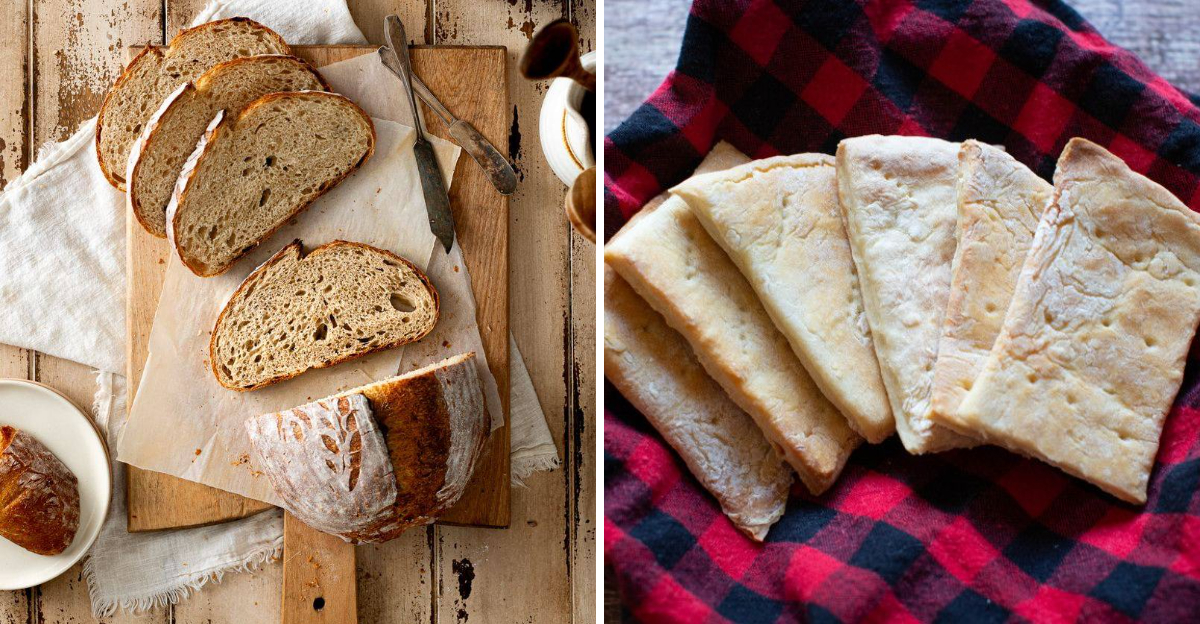
Cowboys on the trail in the Old West didn’t enjoy the luxuries of today’s kitchens—but they managed to fuel long days of herding cattle with a rugged and practical diet. Their meals were all about portability, shelf-stability, and simplicity. Here’s a look at what cowboys typically ate while riding the range.
1. Beans
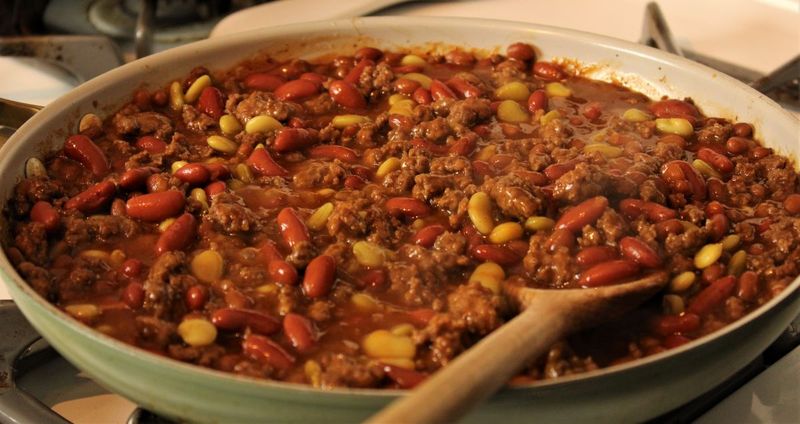
Beans were essential on the trail, often dubbed “the cowboy’s meat.” Their long shelf life made them perfect for extended journeys. Cowboys cooked them over open fires, savoring their rich flavors. Paired with salt pork or molasses, beans provided sustenance and warmth on chilly nights. They were easy to transport in their dry form, making them a practical choice. These legumes offered protein, energy, and comfort after long days of riding. Often, beans were the backbone of a cowboy’s diet, eaten at nearly every meal, offering both nutrition and a sense of home.
2. Salt Pork

Salt pork was a cherished staple for cowboys, offering a rich, salty flavor that complemented many dishes. Its preservation method allowed it to last without refrigeration, making it perfect for the trail. Diced into beans or enjoyed fried for breakfast, it added a flavorful punch. Cowboys appreciated its versatility and high calorie content, vital for energy. The sizzle of salt pork in a skillet was a familiar sound at camp. Its fatty nature not only satisfied hunger but also provided the much-needed grease for cooking other foods, ensuring nothing went to waste.
3. Hardtack
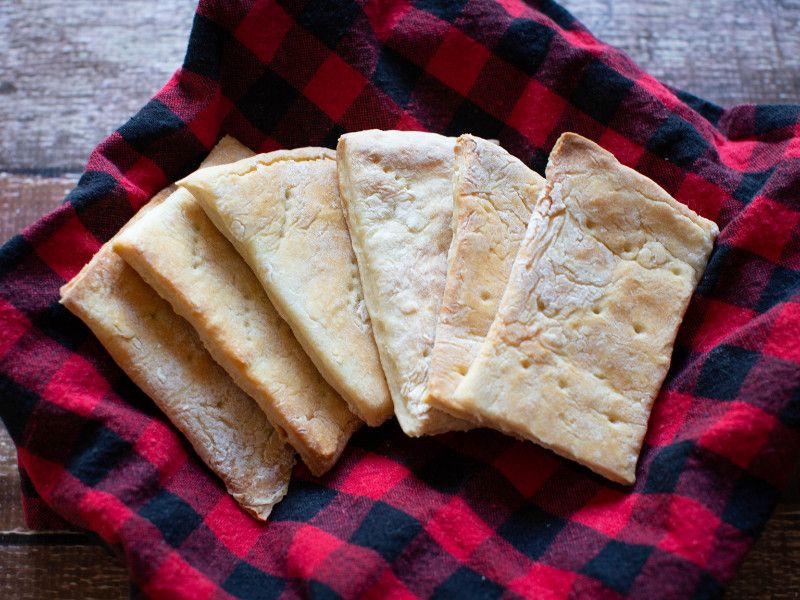
Hardtack, often called “cowboy crackers,” was a durable and reliable source of carbohydrates on the trail. Known for its rock-hard texture, it could withstand the rough conditions of travel. Cowboys softened it with coffee or broth, making it more palatable. Its long shelf life meant it could be stored for months. Though not the most flavorful option, its practicality was unmatched. This dense cracker was an indispensable part of a cowboy’s provision, representing the resilience and simplicity of life on the range. Its toughness mirrored the rugged nature of the cowboy lifestyle.
4. Coffee
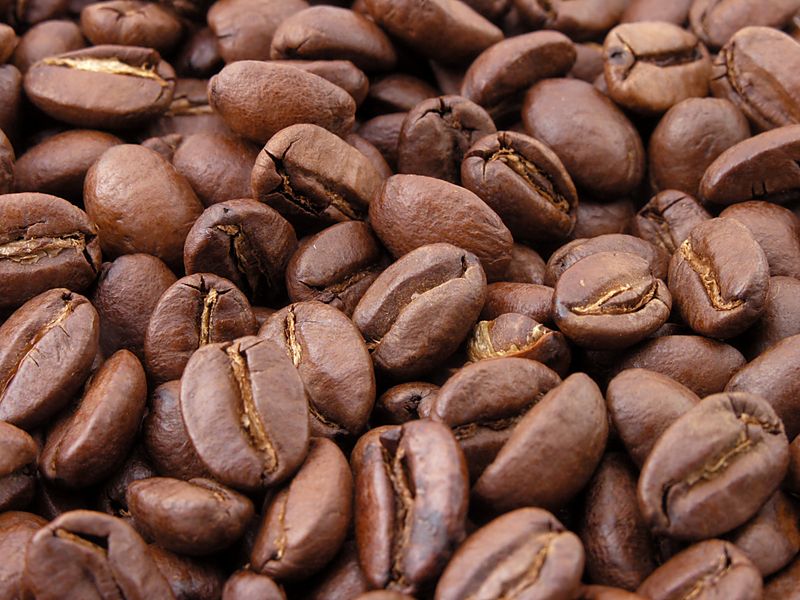
Coffee was the lifeblood of the trail, providing warmth and comfort. Brewed strong over campfires, it fueled cowboys for the long rides ahead. The aroma wafting through the camp was a morning ritual, signaling the start of a new day. Despite its simplicity, coffee was cherished, offering a moment of solace. It was a drink that built camaraderie, shared around the fire. The robust taste was both invigorating and grounding, a reminder of the simple pleasures. For cowboys, coffee wasn’t just a beverage; it was a vital part of their daily routine.
5. Jerky

Jerky was a quintessential trail food, lightweight, and easy to carry. Made from dried beef or game, it was packed with protein, perfect for energy during long rides. Cowboys often chewed on jerky while traveling, savoring its smoky flavors. It required no preparation, making it incredibly convenient. This dried meat provided not only sustenance but also a taste of familiarity, reminding them of home-cooked meals. Jerky was a testament to cowboy ingenuity, preserving meat in a way that captured the essence of the wild West. Its portability made it a favorite among riders.
6. Dried Fruit
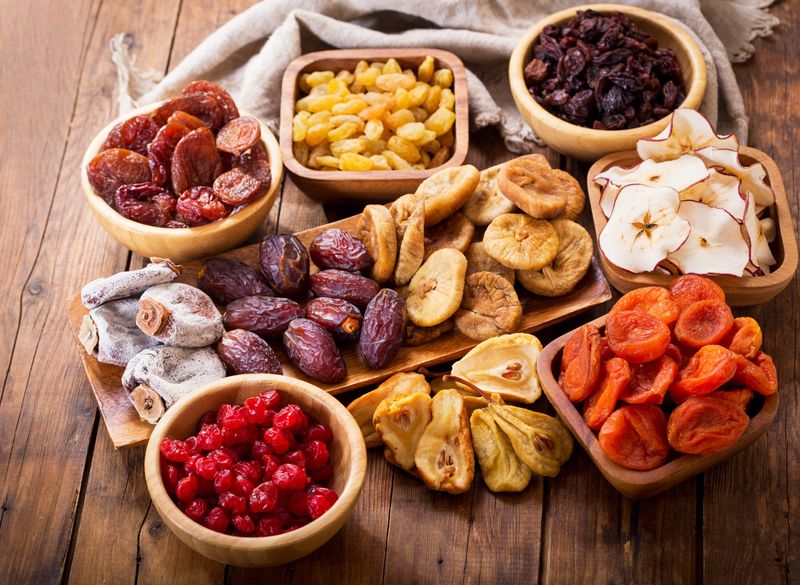
Dried fruit offered a burst of natural sweetness amidst the often savory trail diet. Cowboys relished these treats, rehydrating them into stews or enjoying them as desserts. When fresh produce was scarce, dried apples or peaches provided a comforting familiarity. Their long shelf life made them a practical choice for the journey. The vibrant taste of dried fruit brightened meals, adding variety to the otherwise monotonous diet. For cowboys, these fruits weren’t just food; they were a reminder of orchards and simpler times back home, offering a brief escape from the harsh trail life.
7. Sourdough
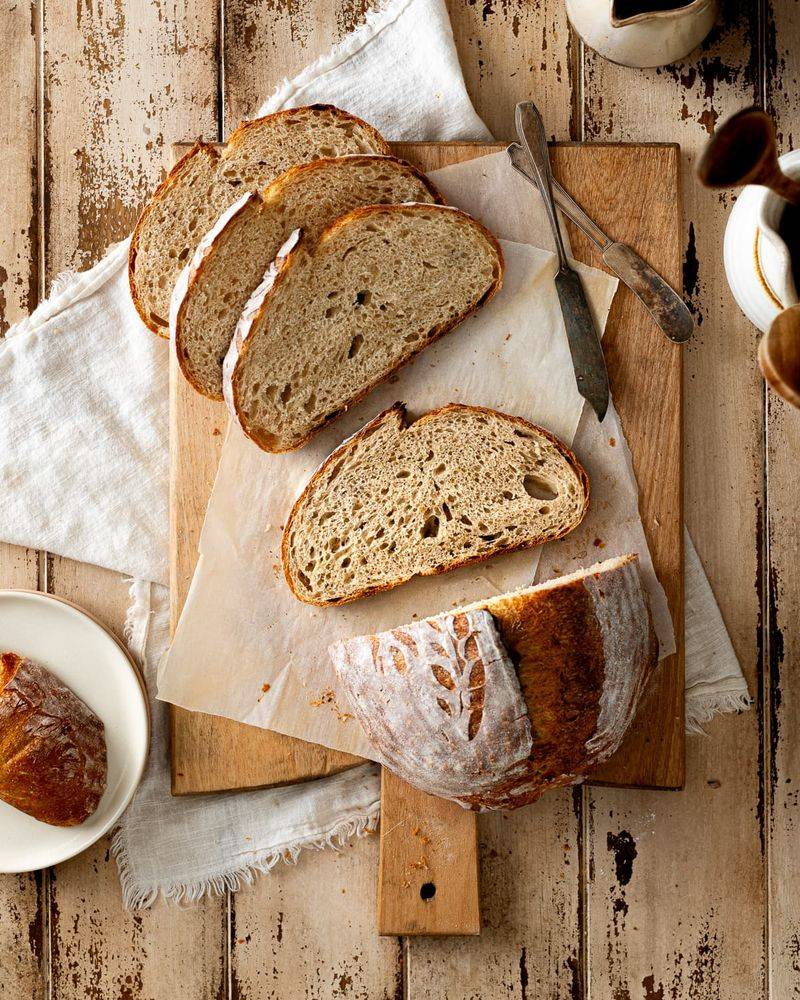
Sourdough was more than just bread; it was a tradition carried by cowboys on the trail. With a sourdough starter, they could bake fresh bread or biscuits, bringing comfort to meals. The skill of baking sourdough was revered, with some cooks gaining legendary status. It offered a taste of home, a reminder of family kitchens. Sourdough’s tangy flavor was a delightful break from the usual fare. This bread was a connection to community and heritage, baked in Dutch ovens under the vast, starry skies. It was both nourishment and nostalgia, a symbol of resilience and resourcefulness.
